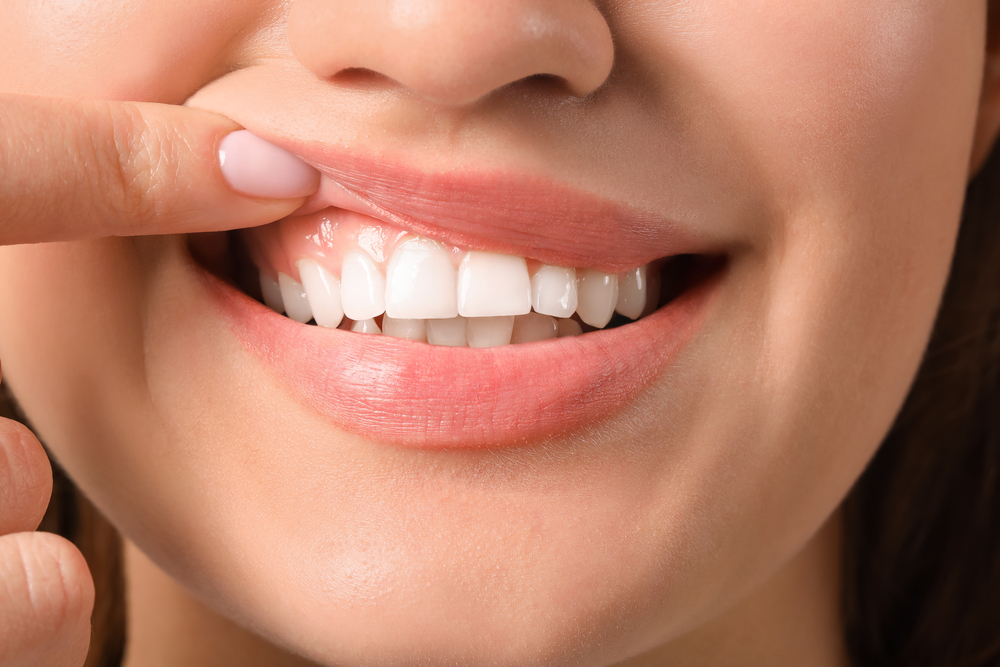Gum disease, also known as periodontal disease, is one of the most common oral health issues affecting adults worldwide. It starts quietly—often with mild gum inflammation known as gingivitis—but can progress into a serious condition leading to gum recession, bone loss, and even tooth loss if left untreated. The good news is that gum disease is largely preventable with the right daily habits. By taking proactive steps at home and seeking timely professional care, you can protect your smile for life.
Why Gum Health Matters
Gums are the foundation of your oral health. They hold your teeth in place, protect the underlying bone, and act as a barrier to harmful bacteria. When gums are neglected, plaque— a sticky film of bacteria—accumulates and causes inflammation. Over time, this leads to the breakdown of gum tissue and bone, requiring more advanced periodontal treatment to manage the damage.
In addition, gum disease has been linked to serious systemic conditions, including diabetes, heart disease, and respiratory issues. Maintaining gum health isn’t just about keeping your teeth—it’s also a crucial part of your overall well-being.
1. Brush Gently but Thoroughly Twice a Day
Brushing is your first line of defense against gum disease. Use a soft-bristled toothbrush and fluoride toothpaste to clean all surfaces of your teeth and along the gum line. Brush in small, circular motions rather than scrubbing harshly, as aggressive brushing can irritate your gums and cause recession.
Make it a goal to brush for at least two minutes, morning and night. Electric toothbrushes can be especially effective, as they often provide more consistent pressure and coverage.
2. Don’t Skip the Floss
Brushing alone cleans only about 60% of your tooth surfaces. Flossing reaches the areas between your teeth where plaque hides and gum disease often begins. Make flossing a daily habit, and take your time to gently curve the floss around each tooth and slide it under the gum line.
If traditional floss is difficult to use, try interdental brushes, floss picks, or water flossers. These alternatives are especially useful for people with braces, dental implants, or limited dexterity.
3. Use an Antimicrobial Mouthwash
An alcohol-free, antimicrobial mouthwash can help reduce plaque, kill bacteria, and soothe inflamed gums. Look for mouthwashes specifically designed for gum health, as they often contain ingredients like chlorhexidine or essential oils that are proven to fight gingivitis.
Swishing daily can be an easy yet effective addition to your gum care routine.
4. Stay on Top of Dental Visits
Even with perfect home care, professional cleanings are essential. Dental hygienists use special tools to remove hardened plaque (tartar) that brushing and flossing can’t reach. These visits also allow your dentist to identify early signs of gum disease before it progresses.
People with a history of gum disease may need more frequent cleanings—every 3 to 4 months—as part of a maintenance plan. This is where periodontal treatment comes into play, especially if pockets have formed between your gums and teeth.
5. Pay Attention to Your Gums
Healthy gums are pink, firm, and do not bleed easily. If you notice redness, swelling, bleeding while brushing or flossing, persistent bad breath, or gum recession, these could be early signs of gum disease. Don’t ignore these symptoms—early intervention can prevent the need for more invasive periodontal treatment down the road.
6. Eat a Balanced, Low-Sugar Diet
What you eat plays a big role in gum health. Bacteria in plaque feed on sugars, producing acids that irritate gums and damage enamel. Reduce your intake of sugary snacks and beverages, and choose more gum-friendly foods such as:
Crunchy vegetables like carrots and celery
Dairy products like cheese and yogurt (rich in calcium and phosphates)
Leafy greens and whole grains (which support immune health)
Drinking plenty of water throughout the day also helps wash away food particles and bacteria.
7. Quit Smoking and Tobacco Use
Smoking is one of the leading risk factors for gum disease. It restricts blood flow to the gums, impairs healing, and makes it harder for your body to fight infection. Smokers are more likely to develop deep gum pockets and require advanced periodontal care.
If you smoke, seek support to quit. Not only will your gums thank you, but your entire body will benefit.
8. Consider Special Care Dentistry if You Have Additional Needs
For individuals with disabilities, medical conditions, or other challenges that affect oral care, special care dentistry can make a significant difference. This branch of dentistry focuses on tailored care plans and accommodations to help every patient maintain good oral health.
Special care dentists are trained to manage patients with complex needs, including those who may have difficulty with standard oral hygiene routines. If you or a loved one needs additional support, don’t hesitate to seek out a provider who specializes in this area.
Prevention is Better Than Treatment
Preventing gum disease is not complicated, but it does require consistency. Simple daily habits—brushing, flossing, using mouthwash, and making smart dietary choices—go a long way in protecting your smile. Combine these with regular dental visits and attention to any warning signs, and you’ll greatly reduce your risk of needing extensive periodontal treatment in the future.
Remember: your gums are just as important as your teeth. By treating them with care and giving them the attention they deserve, you’re investing in a healthier mouth and a healthier life.

